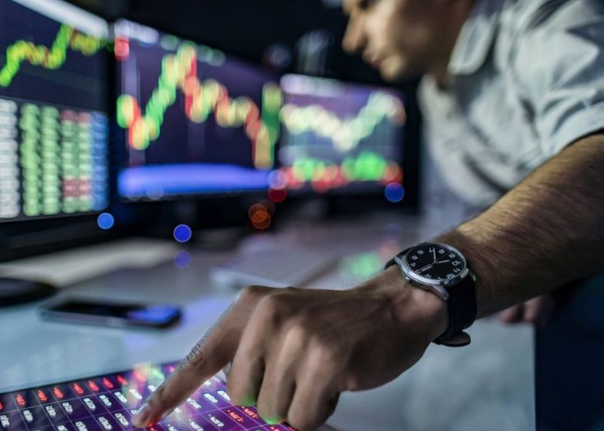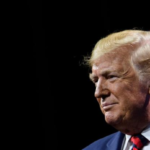Shares have dived after US President Donald Trump restricted travel to the US from mainland Europe in a bid to slow the spread of the coronavirus.
London’s FTSE 100 index sank more than 4% in the first half-hour of trade.
Earlier, stocks in Asia saw big falls, with Japan’s benchmark Nikkei 225 index closing 4.4% lower.
It followed steep losses in US shares on Wednesday, with the Dow Jones plunging by almost 1,500 points, or 5.8%.
In the UK, some of the biggest fallers in the FTSE 100 included travel companies such as the airline group IAG, which sank by 9%, and Tui, which also saw a drop of more than 10%.
The wider FTSE 250 index also shed more than 6% in early trade.
Elsewhere in Asia, the Hang Seng index in Hong Kong lost 3.6% and China’s Shanghai Composite was down by 1.9%.
Oil prices also fell, with Brent crude down more than 4% at $34.34 a barrel.
On Wednesday, the World Health Organization declared the coronavirus outbreak a pandemic.
The falls came after Mr Trump announced a ban on travellers from 26 European countries entering the United States for 30 days, starting on Friday, in order to fight the coronavirus outbreak.
In a televised address from the Oval Office, Mr Trump said the restrictions did not apply to the UK.
He also announced financial relief for US workers who are ill, quarantined or caring for others because of the illness.
The emergency action will also see the US Treasury Department deferring tax payments without interest or penalties for certain businesses and individuals affected.
At the same time, the US government will provide capital and liquidity to small firms affected by the outbreak.
The falls in US shares mean the Dow is now 20% below its recent high, pushing it into what is known as a “bear market”. That brings to an end the longest streak of gains for US stocks to date, which started in 2009.
“It is not the virus itself, but rather the fear and panic related to the virus and the associated altered economic behaviour that could be a damaging tipping point, forcing the global economy onto a darker path,” said Katrina Ell, a senior economist at Moody’s Analytics.



